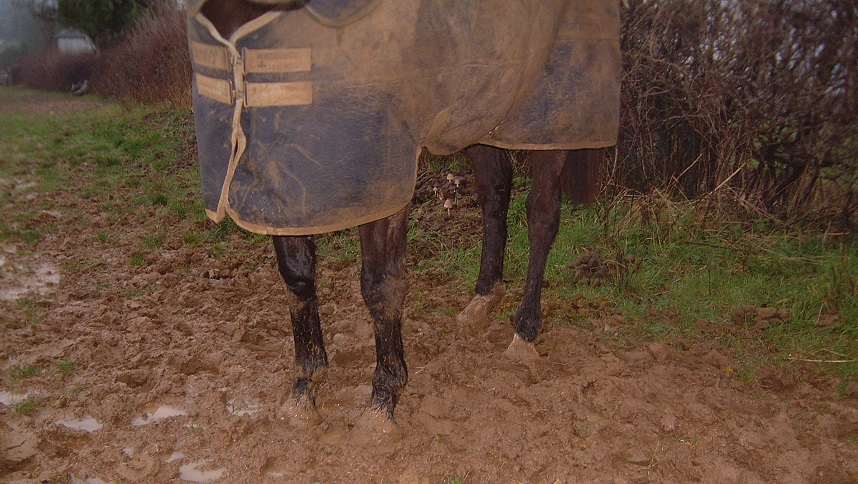Published 13th March 2018 (Edited 19th June 2018) 
With the wetter and warmer (warmer than -5 anyway) weather, it's coming into the time of year when MUD is the bane of both yours and your horses lives. We've put together some suggestions on how best to tackle this problem:
- Leave feathers on – We’re aware that this is not suitable for everyone as some horses do not grow sufficient feathers and others may need to have them removed for competition or other cosmetic reasons. But a horses feathers are nature’s barrier from mud and contain natural oils that protect the skin.
- Minimal hosing – Many humans suffer from painful dry cracked hands over the winter, especially those of us spending time out in the cold with our horses. The reason for this being the frequent exposure to cold weather and water, not drying our hands properly and not immediately replacing the essential oils that we’ve just washed off. The skin on our horse’s legs is just as sensitive to this as we are. So if you have to wash their legs, make sure you apply anti-bacterial ointment that is designed to kill any bacteria in the area whilst not causing any irritation to the skin.
- If minimal or no hair in the legs is an issue, once dry apply a moisturising barrier such as pig oil or barrier cream to ensure that the skin does not dry out too much and crack – which could lead to more problems.
- Protect against damage – there are a variety of turnout boots on the market that can help protect your horse’s legs from both mud and minor injury in the field. But be careful, these boots must be kept hygienic, otherwise the warm moist environment can become the perfect breeding ground for bacteria and can make problems even worse.
- Feed immune support – Often overlooked, feeding your horse an immune support supplement to help to their immune system from the inside can also be beneficial.
- Leave scabs on – Yes we know, this is our most controversial point yet. But if your horse is receiving immunity support from the inside through supplements, you should not have to remove natures plaster.
- Don’t share!! – Bacteria can be carried from one horse to another, so sharing a sponge, brush, towel etc used on the mud affected area between horses can lead to problems spread from one horse to another.
If you would like to discuss any of the above with one of our Advisers, please call us on 01453 836974 or email advice@equifeast.com
